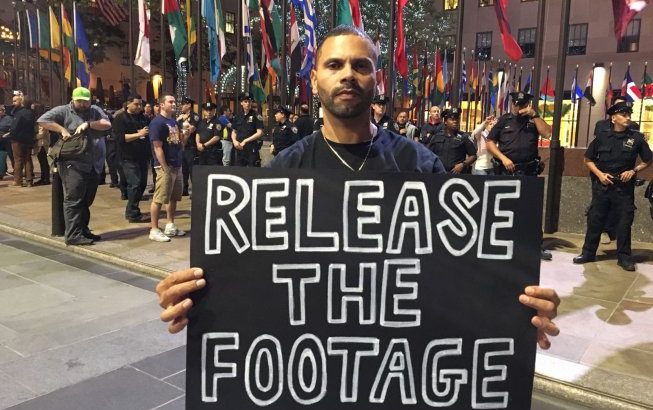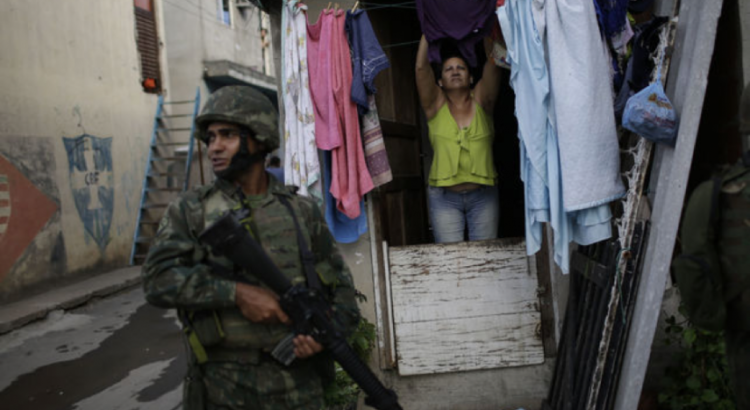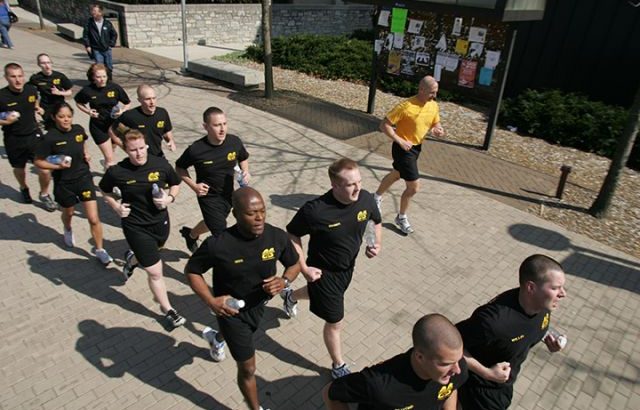América del Norte / Estados Unidos / 17 de julio de 2016 / Por: Ashley A. Smith
A couple of weeks after Michael Brown was shot and killed by police officer Darren Wilson in Ferguson, Mo., in 2014, Wesley Bell told his students his class wouldn’t shy away from discussing the incident.
Bell, a criminal justice professor at St. Louis Community College, found that the real-life incident became a focal point in teaching his students the importance of law enforcement officers becoming a part of the communities they serve.
Since that time, Bell and the criminal justice department at the college have partnered with several law enforcement agencies to increase community policing, which refers to law enforcement where officers establish relationships with the people in the communities they work in, and which encourages diversity within those departments. STLCC proctors independent police exams for a nearby suburban department that was looking to increase diversity among its ranks but had been accused of discrimination in hiring. Other police departments near the college are looking to the campus for help with building community policing.
But St. Louis isn’t alone in having training programs that are changing or having an impact on the type of policing that happens in the community. Colleges, especially those with criminal justice programs that directly lead into law enforcement or police academies housed on their campuses, have been working to address concerns that have arisen in light of the Black Lives Matter movement as they prepare the next generation of police officers. With the recent police shootings of black men like Alton Sterling in Baton Rouge, La., and Philando Castile in Falcon Heights, Minn., criminal justice instructors are preaching more cultural and racial sensitivity in their courses.
In Ohio, there are changes taking place in the state-mandated curriculum for how police officers are trained. Those changes focus on using communication and building relationships as the main method of policing. Columbus State Community College has already been focusing on that type of policing within its criminal justice program and the police academy housed on campus.
«We’ve increased the emphasis on procedural justice concerns and trying to make students aware that every individual has implicit bias whether they know it or not, and to take stock of the preconceived conceptions they have and guard against the dangers of implicit bias,» said Daniel Hare, coordinator of the police academy and assistant professor of justice, safety and legal studies at Columbus State.
Hare said they try to train future officers to be more approachable and personable by using a «community bank» approach. Essentially, officers make positive «deposits» into the community by being more visible, beyond negative incidents like arrests or investigations, as a way to build positive relationships.
«It takes several positive encounters or deposits to overcome even a minor negative deposit, and the more our students utilize and practice that mind-set the better for all involved parties,» he said.
There are obviously laws and procedures that a police officer has to work within, but the goal is to get trainees to understand that they have to have a good relationship and dialogue with the citizens they police, Hare said, adding that the instructors accomplish this through training scenarios.
«Officers or soon-to-be officers will be confronted with someone who is upset or dissatisfied, and the officer has to use communication skills and not necessarily the tools on their duty belt or, heaven forbid, lethal force,» Hare said. «The strong emphasis is on communication and using the mouth and hands.»
Hare said these changes aren’t a direct result of some of the police shootings, but due to realizing that there was a lack of training around communication or bias.
«For better or worse that lack [of training] has opened the eyes of many educators and those overseeing the curriculums,» he said. «You can train an individual on rote process and muscle memory, but you have to explain to them the need for understanding in law enforcement.»
In Baltimore, the county police academy is housed at the Community College of Baltimore County and the campus also provides academics for a few other police agencies, including two police academies at the Maryland Public Safety Education and Training Center. The city experienced its own upheaval and series of protests following the death of Freddie Gray last year after he was arrested by police officers. A few years ago, the criminal justice program created an ethics and diversity in criminal justice course that is mandatory for students.
Dennis Seymour, dean of the School of Justice at CCBC, said that course has helped faculty members and students talk about each of the incidents, including the Gray case.
«It’s a difficult time to be a police officer, and understanding the underpinning of the cultural and racial issue is key to making them successful and safe,» he said.
That ethics and diversity course, for instance, addresses the cycle of how focusing on minorities, especially black and Latino men, who are perceived to be criminal results in higher arrest rates for those people, which makes the minority group look more criminal and continues the negative perceptions of law enforcement, he said, adding that it’s not only misperceptions of black people, but Muslims and transgender people, too.
«With shock we watched the videos of people being murdered. These aren’t just television shows — these are real life situations, and we’re not immune from all of that,» said CCBC President Sandra Kurtinitis. «We have people here with prejudices and people here who are racists and people here with guns. All the things that we wish weren’t around, but we have to work hard to channel it in the direction that translates into all lives matter. How that translates into criminal justice curriculum and Baltimore County Police Academy and our own public safety officers, I think there’s a relationship between the environment we establish and then what happens in the training of people who must execute the law.»
Seymour started his career in law enforcement in the 1960s and said the way future police officers are being trained today when it comes to cultural and racial sensitivity is different from when he was in the academy.
«I don’t think we really got to issues in minority communities. We were teaching our perceptions of the racial and cultural and minority situation as opposed to the real situations,» he said. «Today, especially since the civil rights movement in the 1960s and 1970s, we’re really hearing the issues from people through peaceful protest. It’s difficult to hear and invaluable to understand where people are coming from.»
But the shooting of 12 police officers, five of whom were killed, in Dallas last week has made the issue more difficult, Seymour said.
Student Interest in Law Enforcement
There is some concern that the negative perceptions surrounding police will affect whether students choose that career path.
Seymour said his college hasn’t seen an effect on enrollment just yet because of the police shooting incidents. But if there are people who ultimately decide it isn’t the career for them, that’s fine, too, he said, adding that there may be families looking at what happened in Dallas and persuading young people not to go down this career path.
«There are still ample applicants here in the state of Maryland, and these folks are the cream of the crop. I wouldn’t be accepted in law enforcement today with the criteria they hold for people,» he said. «So we’ve got good folks coming into the profession here. Much better than decades ago, although that’s not always the case with all departments.»
Enrollment to become peace officers — the state of Ohio’s term for law enforcement officers — through Columbus State has dwindled because of negative perceptions around police, Hare said, adding that he doesn’t have specific numbers, but there does seem to be more interest from minority students.
Back at St. Louis Community College, Bell, the criminal justice professor, said it’s been a «mixed bag» when it comes to students interested in a career in policing.
«In general, we’ve seen a decrease in young people getting involved in law enforcement, which, after the last few years you could understand that sentiment,» he said. «But I’ve been able to have these constructive conversations and we’ve talked about improving police departments. I emphasize that if you have a concern with policing that’s more incentive to get involved. I’m seeing more of my students after those conversations at least consider getting involved.»
Source: https://www.insidehighered.com/news/2016/07/15/colleges-rethink-criminal-justice-training-rise-black-lives-matter








 Users Today : 19
Users Today : 19 Total Users : 35459925
Total Users : 35459925 Views Today : 23
Views Today : 23 Total views : 3418488
Total views : 3418488